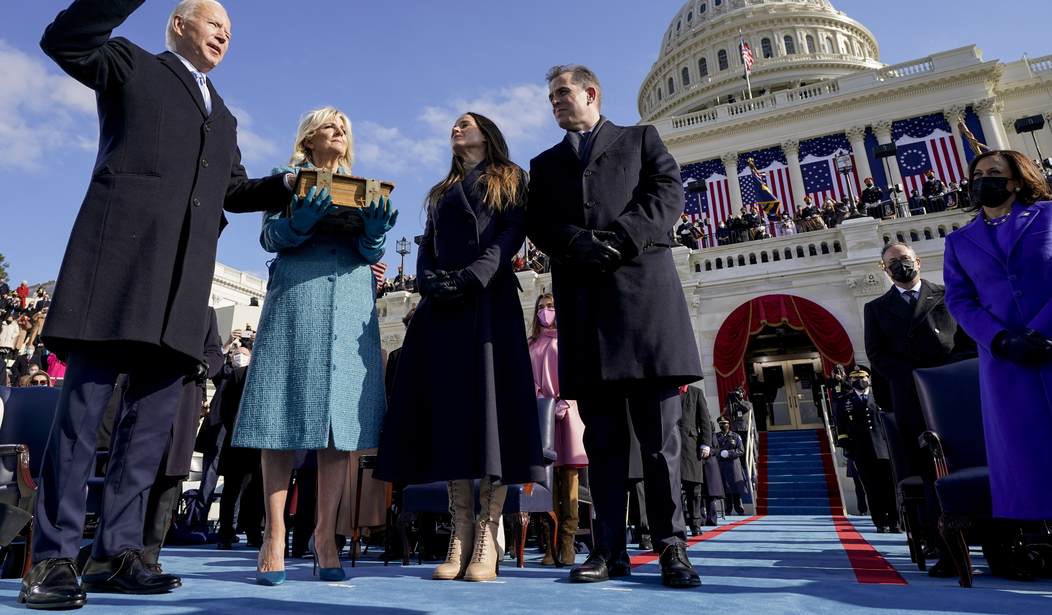Joe Biden has 42 more days to serve as president of the United States. But anyone watching events in Paris over the weekend would think President-elect Donald Trump has already taken office. The president-elect traveled to France ostensibly to celebrate the reopening of Notre Dame cathedral, but the visit turned into high-level diplomacy between European leaders -- French President Emmanuel Macron and Ukrainian President Volodymyr Zelensky, among others -- and the next U.S. president. With the war in Ukraine at a critical stage, not to mention the Middle East continuing its meltdown, the event took on enormous significance, with Trump acting as de facto leader of the free world. The real president for the next six weeks, Biden, was back home, resting up.
Trump is quickly assembling an administration. After several weeks of mostly quiet working, he has been speaking more publicly in recent days about what he will do when he assumes the presidency on Jan. 20. Leaders in Washington and in the world are planning and preparing for that time. Biden seems less and less relevant to the conversation. "Biden has effectively disappeared from the radar," reports Politico. "Within the Democratic Party, on Capitol Hill -- and even within his own administration -- it feels like he left the Oval Office weeks ago."
But Biden is still president of the United States, and Trump is not. If an emergency, a crisis, arises, Biden, even in his weakened condition, will have to deal with it. Right now, it appears that much of the Biden administration is spending a significant amount of its time trying to "Trump-proof" Biden's policies -- that is, to tie the incoming president's hands by making it difficult for him to change things. That's not particularly productive work.
Certainly, most Republicans, and lots of independents, and even some Democrats, would prefer if the inauguration came before Jan. 20. But the inauguration date is in the Constitution, in the 20th Amendment. The amendment was ratified in 1933 to replace the previous inauguration date of March 4, which had been the date since nearly the beginning of the nation but left a long transition period between a presidential election in the first week of November and the inauguration in the first week of March. In 1932, in the crisis of the Great Depression, Congress proposed the date-change amendment. By early 1933, it had been ratified by enough states to become part of the Constitution and take effect after the presidential election of 1936.
Recommended
So, inauguration day is Jan. 20, and it can't be changed without amending the Constitution. The arrangement has worked relatively well for 90 years, even though it doesn't seem so great at this particular moment. Should Congress undertake the work of changing inauguration day?
This issue has come up a number of times in recent presidencies. In the 2008 election, the economy was in grave difficulty, and an exhausted President George W. Bush was limping to the end of his second term. There were Democrats who were frustrated by the time it took before the newly elected President Barack Obama could take office. After the 2020 election, there were some who wanted Trump out of the White House as quickly as possible. On the other hand, presidents have taken office who clearly could have used more time to get ready, such as after the time-consuming Florida recount in the 2000 presidential election.
Now, we're in an obviously unusual situation that, with any luck, is unlikely to be replicated soon. For one thing, President Biden, at 82 years old, is no longer mentally and physically up to the job of being a full-time president. For another, Trump has been president before and is running a far smoother transition than he did the first time around, in 2016-2017. In other words, Biden is ready to go, and Trump is ready to replace him. The circumstances are right for a shorter transition. But that will not always be the case. Without an overwhelming crisis, like the situation in 1932-1933, it seems unlikely there will be enough political will to make a change, so Jan. 20 it is.

























Join the conversation as a VIP Member